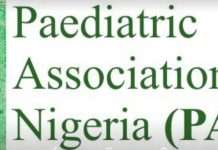
In promoting the act of optimal breastfeeding among nursing mothers, the Director General, National Agency for Food and Drug Administration and Control (NAFDAC) Prof. Mojisola Adeyeye, has listed the benefits of exclusive breastfeeding to include reduced risk of breast and ovarian cancers in mothers, stronger immunity for babies, reduced risk of childhood illnesses and infections.
Urging mothers to leverage the nourishing nutrient of breast milk for the overall wellbeing of their babies, she mentioned other advantages of breastfeeding to the nursing moms such prevention of postpartum bleeding, support of child spacing, lower the risk of breast and ovarian cancers and earlier return to pre-pregnancy body weight. She added that it is also associated with longer-term health benefits including reduced risk of overweight and obesity in childhood and adolescence.
This is even as the World Health Organisation (WHO) has described the
female gender as the strongest breast cancer risk factor, with 2.3 million women diagnosed with breast cancer and 685 000 deaths recorded globally in 2020.
The apex health institution confirms that there were 7.8 million women diagnosed with breast cancer at the end of 2020, making it the world’s most prevalent cancer. Breast cancer occurs in every country of the world in women at any age after puberty but with increasing rates in later life.
The NAFDAC boss made the statement during the commemoration of the 2023 World Breastfeeding Week celebration with the theme: “Enabling breastfeeding –making a difference for working parents”. She noted that in underscoring the importance of creating an enabling environment for child health, the agency recently created an Office of Women’s Health, a multi-disciplinary centre where issues that concern maternal and child health will be continuously addressed.
Adeyeye who was represented by the director, Food Safety and Applied Nutrition (FSAN), Mrs Eva Edwards, added that it is also associated with longer-term health benefits including reduced risk of overweight and obesity in childhood and adolescence.
According to the NAFDAC DG, this year’s theme was apt as it was aimed at strengthening the collaboration of actors across different levels of society to support and promote breastfeeding for working parents so that women can combine breastfeeding and work. She added that this is important because workplace challenges remain one of the most common reasons for women to stop breastfeeding earlier than recommended.
Prof. Adeyeye further explained that a workplace needed adequate breastfeeding facilities to become a breastfeeding-friendly workplace, adding that lack of conducive breastfeeding environment especially for working mothers hinders breastfeeding of infants. With the provision of appropriate lactation rooms in workplaces, she maintains that employers stand to benefit as it leads to happier, more dependable, and productive employees.
‘’It also leads to reduced absenteeism because breastfeeding employees’ babies get sick less often and less severely’’, she said.
She however, maintained that there is still a lot of work to be done in creating an enabling breastfeeding environment to promote the best nutrition, health, and environmental outcomes. One contributory strategy to achieving this, she said, is enforcing compliance with the International Code of Marketing of Breastmilk Substitutes established to protect and promote breastfeeding and protect mothers from inappropriate marketing of breastmilk substitutes by industry.
The NAFDAC boss pointed out that the agency is resolute in her commitment to promoting and protecting breastfeeding and recognizes the threats that aggressive marketing of breastmilk substitutes (BMS) poses to optimal breastfeeding practice. She stressed that the revised Marketing of Infant and Young Children Food and other Designated Products (Registration, Sales etc.) Regulations has incorporated subsequent relevant World Health Assembly resolutions and recommendations on the International Code of Marketing of Breastmilk Substitutes.
Amongst other provisions, she said, it prohibits unethical marketing practices by infant food manufacturers. ‘’This is in recognition of the fact that aggressive marketing of breastmilk substitutes is among the factors that contribute to undermining breastfeeding and is associated with decreases in breastfeeding rates.’’
While they will continue to strengthen the implementation, monitoring and enforcement of the Code of Marketing of Breastmilk Substitutes and our national regulations, she implored everyone to join hands with NAFDAC as breastfeeding is a cost-effective investment in the nation’s health, economy, and future workforce.
Speaking in the same vein, the Programme Team Lead, Nutrition Society of Nigeria (NSN) Lagos Chapter, Mrs Chioma Emma-Nwachukwu, emphasised that nutrition is essential for a healthy breastfeeding journey. She admonished mothers to also maintain a balanced diet and stay hydrated to provide the best for their little one.
‘’Your diet influences the quality of your breastmilk and, in turn, affects your baby’s health. Embrace foods that boost lactation and enhance your baby’s well-being’’, she said.











